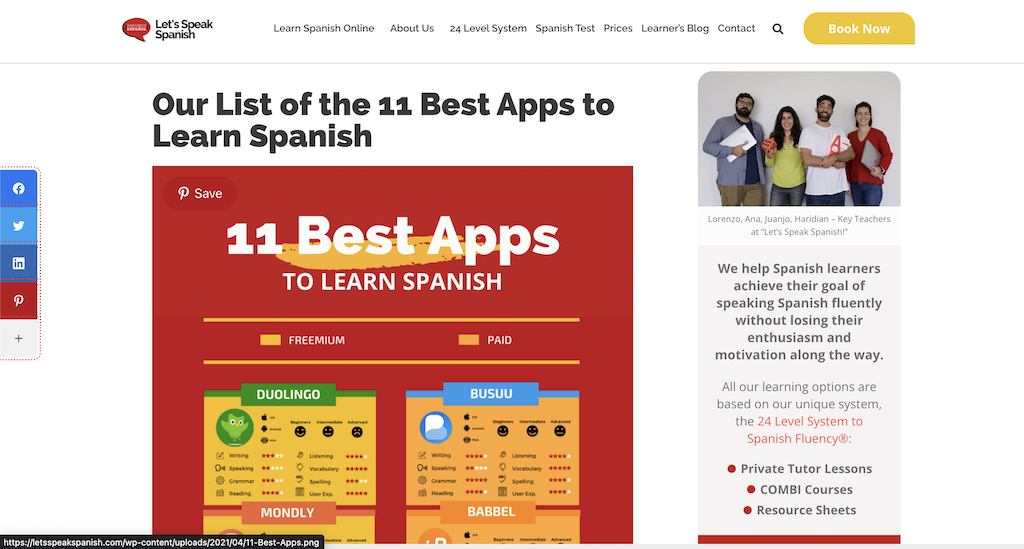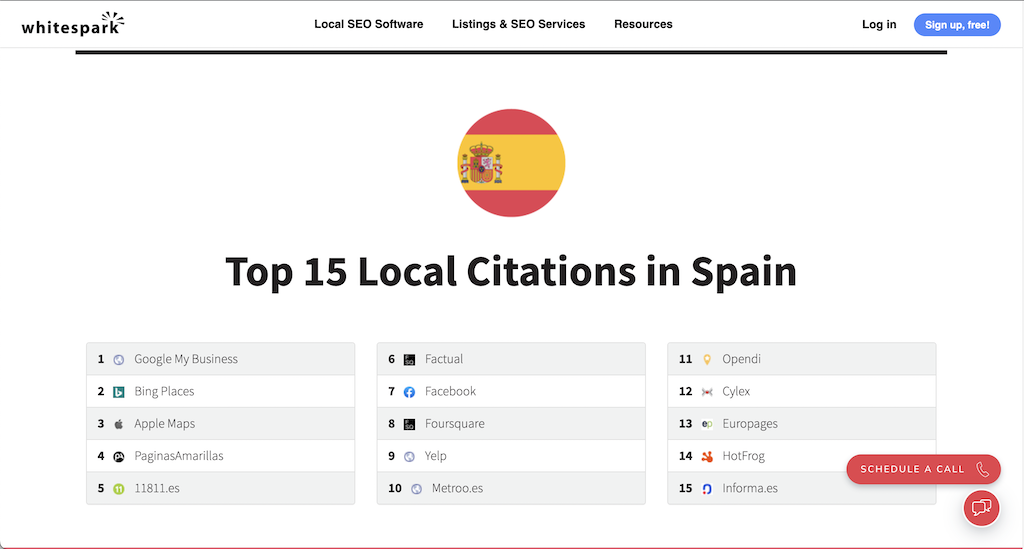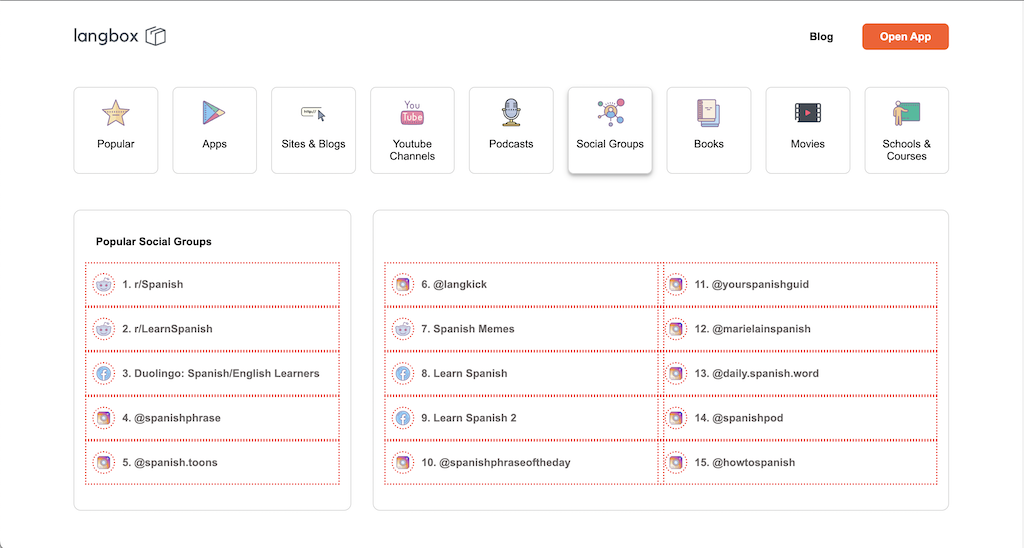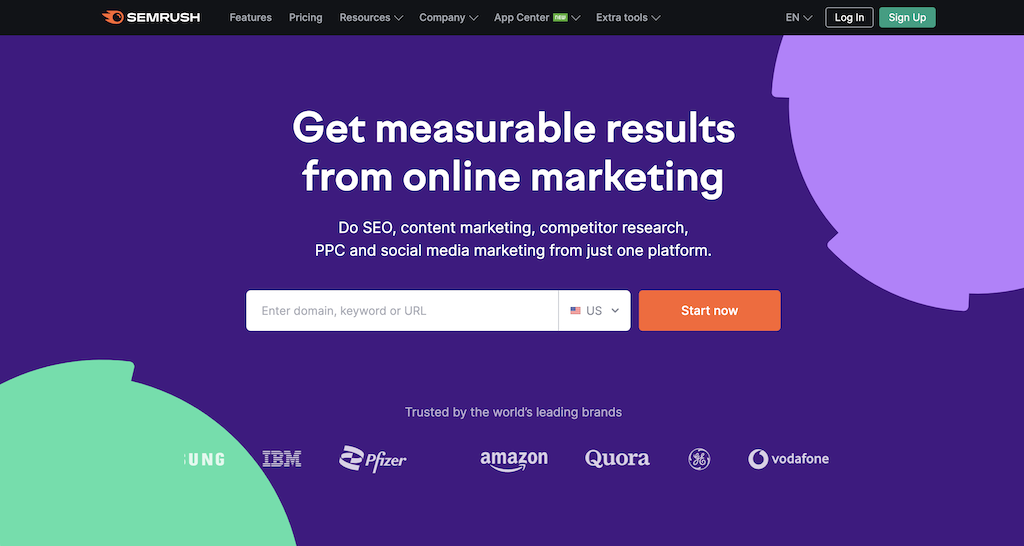- August 9, 2023
- by Olivia
- Link Building
- 0 Comments
Navigating the SEO world can feel like a journey through a labyrinth, especially when trying to appeal to a specific audience, like the Spanish-speaking market. Yet, if you’re a small business owner or run a digital marketing agency, you’ll know that a robust SEO strategy is key to growing your online presence and business. A crucial part of this puzzle is link building. These aren’t just ordinary links but quality backlinks that boost your website’s credibility and ranking on search engine results pages (SERPs).
In this article, we’ll share ten efficient strategies tailored for effective link building in the Spanish market. From leveraging social media to engaging in Spanish-speaking communities, these techniques will help you increase traffic, improve visibility, and drive growth. So, are you ready to uncover the secrets of successful link building? Keep scrolling, and let’s dive in!
Understanding the Importance of Link Building
Before we delve into specific strategies, it’s crucial to understand the importance of white hat link building. Search engines like Google use links to discover new web pages and determine their ranking. When multiple high-quality sites link to yours, it signals to search engines that your content is valuable and reliable, thus improving your ranking.
Strategy 1: Quality Content Creation
One of the most effective link-building strategies is to create high-quality, unique, and valuable content. If your content is informative and engaging, other sites will likely link to it. Additionally, remember to localize your content to cater to your Spanish-speaking audience.
Now, consider the Spanish market. It’s vibrant, diverse, and full of potential customers for your business. By implementing effective link building strategies in Spanish, you’re tailoring your approach to this market. This expands your reach and shows search engines that your content is valuable and trustworthy, enhancing your ranking.
A higher ranking in digital marketing means more visibility and potential customers. So, the significance of link building cannot be overstated, especially when you’re reaching out to the Spanish-speaking market.
For example, this infographic about the list of best apps to learn Spanish was able to get backlinks from 54 referring domains:

Strategy 2: Guest Blogging
Think of guest blogging as your passport to a broader audience. It’s your chance to showcase your expertise on other platforms and attract new visitors to your website. It’s about writing articles for Spanish websites relevant to your business.
In these guest posts, you can include links back to your own site. This introduces your brand to a broader audience and builds valuable backlinks. And remember, search engines love these backlinks!
However, always ensure that your content is of high quality and value. This way, you establish a reputation as an expert in your field. This trust translates into more clicks, visits, and, ultimately, more customers for your business.
Strategy 3: Using Social Media
Harness social media’s power; it’s your secret weapon for link building. With many Spanish-speaking users on platforms like Facebook, Twitter, and Instagram, you’ve got a golden opportunity to boost your visibility.
Start by sharing your quality content on these platforms. Tailor it to your audience, ensuring it’s engaging, relevant, and in Spanish. This increases the chances of others sharing it, expanding your reach and building more links to your site.
But don’t stop there. Engage with your audience, join conversations, answer their questions. Build relationships. This fosters trust, and when people trust you, they’re more likely to visit your website, share your content, and even become loyal customers. With social media, you’re not just building links; you’re building a community around your brand.
Strategy 4: Resource Link Building
Imagine creating something so valuable, so informative that others can’t help but link to it. That’s the idea behind resource link building. It involves creating high-quality, valuable resources that others want to share, thus creating links to your site.
Maybe you could create a detailed guide or an informative blog post. Or perhaps an infographic that’s easy to understand and share. The key is to make it relevant to your audience and, in this case, make it valuable for Spanish-speaking users.
And don’t forget quality matters. If your content is high quality, others will see it as a valuable resource worth linking to. This builds links and establishes your reputation as an authority in your field. The result? Increased visibility, more traffic, and ultimately, more growth for your business.
Strategy 5: Utilizing Spanish Directories
Let’s talk about directories. Yes, those online lists categorize websites based on their content. By submitting your website to Spanish directories, you’re putting your business on the radar of potential customers and building links in the process.
But remember, not all directories are created equal. Some are reputable and have high authority, while others don’t. So, choose wisely. Find directories that are relevant to your business and respected in the industry.
Once you’ve picked the correct directories, ensure your listing is accurate and enticing. A well-written description can make a big difference, enticing visitors to your website. In a nutshell, Spanish directories can provide an excellent opportunity for link building and visibility if used correctly.
To help you get started, here are the top 15 local citations in Spain:

Strategy 6: Engaging in Relevant Forums and Communities
Participating in Spanish-speaking forums and communities can help you build credibility and form relationships with potential link partners. Always provide valuable input and avoid spammy behavior.
The online world is teeming with communities, forums, and groups where like-minded individuals gather. Engaging in these spaces, especially those tailored to the Spanish audience, can be a goldmine for link-building.
Start by finding forums and communities that align with your business niche. Once you’re in, don’t just dive into self-promotion. Instead, take time to engage, offer value, and help others. Answer questions, provide insights, and become a trusted community member.
As you solidify your position, you’ll find natural opportunities to share your content, which can lead back to your site. Furthermore, your connections here can open doors to collaborations, guest posts, and other link-building opportunities.
In essence, forums and communities offer more than just links; they provide a platform for building relationships, understanding your audience, and positioning your business as a go-to resource in your industry.
You can join some of these Spanish-speaking Facebook and Instagram communities to jumpstart your link building campaign:

Strategy 7: Broken Link Building
Ever clicked on a link and found that it led nowhere? Frustrating. This is where broken link building comes into play. It’s a strategy that turns a nuisance into a link-building opportunity for your business.
The idea is simple. You find broken links on other websites, typically relevant to your business. Then, you contact the website owner, inform them about the broken link, and suggest a replacement. Of course, the replacement link would return to a relevant page on your website.
Done right, broken link building is a win-win. The website owner gets to fix a broken link on their site, improving their user experience, and you get a new backlink leading to your site. Remember, every link counts in boosting your visibility, especially in the competitive Spanish market.
Strategy 8: Local Link Building
Local link building can be your ticket to greater visibility and relevance if your business operates within a specific geographical area. This is all about creating connections and gaining links within your local community.
Participate in local events, sponsor a local sports team, or collaborate with local influencers. These activities can generate buzz about your business and naturally lead to valuable backlinks from local websites.
Don’t forget about local directories, either. A listing on a popular local directory not only puts your business on the map but can also serve as a backlink to your site.
Ultimately, local link building is about cementing your place within your community, offline and online. As your reputation grows locally, so will the strength of your link profile, making your business more visible to your target audience.
Strategy 9: Backlink Analysis
It’s time to play detective with backlink analysis. This involves examining your competitors’ backlinks to gain insights into their link-building strategies. You might discover new opportunities for your own business to gain high-quality backlinks.
Use SEO tools like Ahrefs or SEMrush to conduct this analysis. These platforms can show you which sites are linking to your competitors, and you can then reach out to those sites for potential link-building opportunities.
However, don’t just replicate your competitor’s links. The goal is to learn and adapt their strategies to fit your business. In the end, backlink analysis can provide a wealth of knowledge, revealing the link-building strategies that work within your industry.
Remember, understanding your competitors is crucial in outsmarting them. So, analyze those backlinks and stay one step ahead in the game.

Strategy 10: Building Relationships
Lastly, building relationships is at the heart of successful link building. It’s about connecting with other website owners, bloggers, influencers, and your audience. When you cultivate these relationships, link-building opportunities naturally follow.
Start by engaging with your community. Participate in online forums, comment on relevant blogs, answer questions, and offer help. Show genuine interest in what others are doing and share valuable insights. This not only helps build your reputation but also fosters trust.
Trust, in turn, can lead to collaborations, guest blogging opportunities, link insertions, and link exchanges. It opens doors that might have remained closed otherwise. And while this process takes time, the long-term benefits are worth the effort.
In the end, building relationships is about more than just gaining links. It’s about creating a network of support that can help your business thrive in the Spanish market.
Conclusion
In conclusion, effective link building is essential to any successful SEO strategy. When tailored to the Spanish market, the above strategies can significantly boost your website’s visibility and ranking on SERPs. As with any SEO endeavor, patience and persistence are key. Remember, successful link building is a marathon, not a sprint. Implement these strategies, and you’ll see a noticeable improvement in your site’s SEO performance over time.
Remember, the digital landscape is always changing, so keep exploring, learning, and adapting. Feel free to reach out if you have more questions or need further assistance. Together, we can help your business thrive in the digital space. Keep reading, and stay ahead of the curve!



